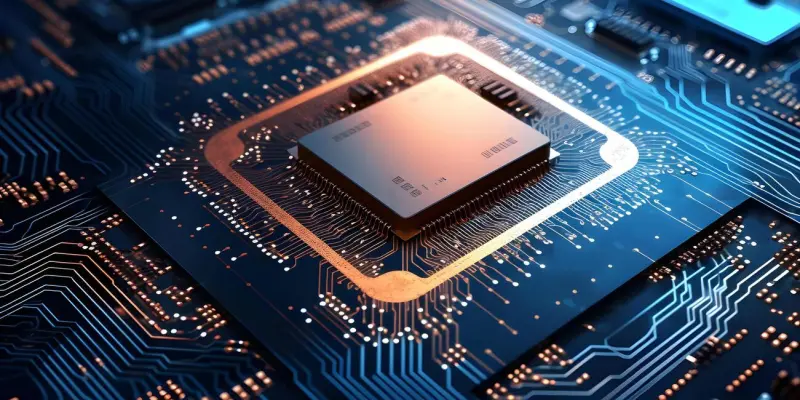In an unexpected turn of events within the global semiconductor industry, Intel is encountering significant consumer reluctance toward its latest line of AI-enhanced processors. These chips, known as Meteor, Arrow, and Lunar Lake, integrate advanced artificial intelligence capabilities, promising to revolutionize computing power. However, many consumers remain unmoved despite these technological strides, choosing to stick with earlier models like Raptor Lake and Alder Lake. At the heart of this consumer behavior is an apprehension about escalating prices due to tariffs and economic uncertainties, prompting many to prioritize cost over cutting-edge AI functionalities.
Consumer Reluctance and Market Dynamics
Intel’s dilemma is rooted in the prevailing economic atmosphere that has profoundly influenced consumer priorities. During a recent earnings call, Intel executives shed light on an interesting trend: a preference for established, cost-effective processors over their innovative new counterparts. This reality is underscored by a comprehensive survey of over 20,000 tech enthusiasts, where an overwhelming 84% of respondents expressed hesitancy to pay more for AI capabilities. The feedback encapsulates a broader consumer sentiment, highlighting how economic pressures are reshaping purchasing decisions in favor of affordability rather than technological advancement.
Michelle Johnston Holthaus, a key figure at Intel, has confirmed these demand patterns, noting that many customers are now more inclined to seek economical solutions instead of splurging on enhanced tech features. Compounding this issue are tariffs and macroeconomic instabilities that cast a long shadow over consumer enthusiasm for newer, pricier technologies. Although Trump’s past policy decisions granted temporary exemptions on tariffs for chips, Intel remains vulnerable to China’s retaliatory measures, posing potential threats of heightened costs and limited availability, a situation that fosters further consumer reticence.
Production Challenges and Strategic Shifts
The reluctance to embrace AI-enhanced chips also places a significant strain on Intel’s production and operational strategies. Remarkably, the company’s 7nm production capacity is currently overwhelmed by a surprising surge in demand for older processors rather than the new-generation models. This unexpected demand not only highlights consumer frugality but also presents logistical challenges as Intel scrambles to balance its production lines between older and newer technologies. This scenario creates a logistic knot, forcing the company to reassess its priorities and align its production strategy with shifting market demands.
In response, Intel’s leadership has resorted to transformative moves, including restructuring initiatives that involve layoffs and necessitate more stringent in-office employee presence. Pat Gelsinger, Intel’s CEO, aims to steer the company through these turbulent times, focusing on maintaining operational efficiency while adapting to market conditions. These decisions reflect the dynamic landscape in which Intel operates, characterized by the need to remain agile and responsive as economic uncertainties continue to dictate market behavior. Michael Ashley Schulman from Running Point Capital insightfully summarizes this trend, emphasizing that consumers in precarious economic climates gravitate toward technology that is “good enough” rather than opting for more expensive, state-of-the-art options.
Navigating a Complex Market Landscape
In an unforeseen development in the worldwide semiconductor sector, Intel is facing notable consumer hesitation regarding its new lineup of AI-powered processors. These processors—dubbed Meteor, Arrow, and Lunar Lake—are equipped with cutting-edge artificial intelligence functionalities, designed to enhance computing capabilities significantly. Despite their promise to revolutionize the computing experience, many consumers are not rushing to adopt these advancements. Instead, there is a noticeable trend of consumers sticking with earlier models, such as Raptor Lake and Alder Lake. This hesitance is primarily driven by concerns over rising costs linked to tariffs and economic instability, leading many consumers to favor older, more affordable models over the newest technology. The potential price hike associated with these AI advancements prompts users to evaluate their financial priorities, ultimately choosing cost efficiency over the allure of state-of-the-art AI features. Such decisions highlight the complexity and unpredictability of consumer behavior in the tech market.

